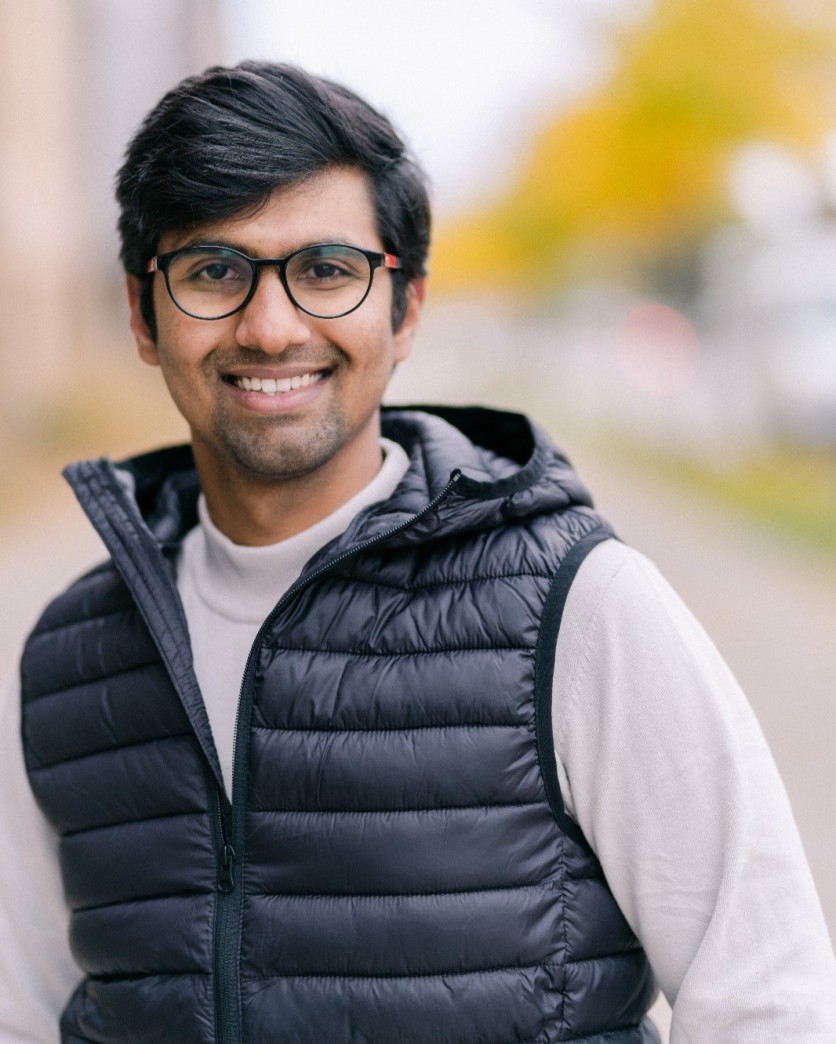
Rajasekhar Chadalawada is a distinguished civil engineer with a remarkable career in transportation engineering. Holding an M.S. in Civil Engineering with a focus on Transportation Engineering from Bradley University (2016) and a Bachelor of Technology in Civil Engineering from Vignan University (2014), he has made significant contributions to the field.
Throughout his career, Chadalawada has pushed the boundaries of conventional engineering solutions, continually striving to improve the efficiency and safety of road networks. "I am an enthusiast by nature. I like to think away from conventional methods and ideas," said Chadalawada. "Civil engineering gives me a wide range of possibilities to think out of the box." His unique blend of field experience and leadership has made him a driving force in practical applications and cutting-edge research.
Innovation in Smart Traffic Management
One of Chadalawada's most recent contributions to transportation engineering is his Smart Traffic Management System. This innovative technology leverages real-time data analytics, machine learning, and advanced sensor networks to optimize traffic flow across urban road networks. By integrating various data sources, including traffic cameras, GPS data, and vehicle-to-infrastructure (V2I) communications, the system dynamically monitors and controls traffic conditions, reducing congestion, improving travel efficiency, and enhancing road safety.
The system uses machine learning algorithms to predict traffic congestion, making it possible to adjust traffic signals, lane directions, and speed limits proactively. In addition, the system provides real-time updates to drivers through V2I communication interfaces, offering rerouting suggestions and congestion alerts. These capabilities make commuting more efficient and sustainable by reducing fuel consumption and lowering emissions.
Chadalawada's patent addresses a growing challenge in urban environments—traffic congestion—by introducing a scalable and adaptable solution that can be customized for both small cities and large metropolitan areas. It combines cloud computing for long-term analysis with edge computing for real-time decision-making, ensuring both scalability and efficiency in managing complex traffic systems.
Publications and Research Contributions
He has authored and contributed to influential publications that include "Innovative Trenchless Technologies for Installing Underground Fiber Optic Cables: Improving Efficiency While Minimizing Environmental Impact" (2024), "Optimizing Public Transit Networks: An Exploration of How Multi-Modal Transportation Systems Can Be Integrated in Smart Cities" (2022), and "Evaluating Seismic Reinforcement Techniques for High-Rise Buildings in Earthquake-Prone Regions" (2015). These publications reflect Chadalawada's commitment to advancing technology in transportation and ensuring the environmental and social sustainability of infrastructure systems.
He has also written a reference guide titled "Design and Construction Details of Elements of Infrastructure at Various Sites," which explores the field material tests, quality control exercises, and the design of structural elements such as bridges and buildings. It also covers pre-stress concrete, surveying, and field trips, offering a valuable resource for both seasoned engineers and students entering the field.
Career Milestones and Special Projects
Chadalawada's career is marked by key milestones, from his early work regulating traffic during road maintenance to managing large teams overseeing multi-million-dollar projects. Notable projects include contributions to optimizing public transit networks, working on large infrastructure projects, and developing smart solutions for traffic management and safety. These efforts are fueled by his desire to enhance efficiency, reduce environmental impacts, and ensure road safety.
Community Involvement and Mentorship
He is passionate about mentorship and community involvement. "I want to work with young students and engineers and share the knowledge I have acquired along the way," said Chadalawada. His commitment to education and professional growth extends to his participation in volunteer programs and professional affiliations within the civil engineering community.
Achievements
Chadalawada's exceptional achievements include winning first prize at the National-Level Technical Symphonies (2011, 2012), leading the Civil Engineering Geotechnical Society (South India) (2010–13), and facilitating AutoCAD workshops for over 170 students across 14 engineering colleges in 2012. He has been a key contributor to the University Civil Engineering Association, played a role in organizing events, and served as a panel member for a Civil Engineering Technical Event in 2013. Additionally, He collaborated on material testing for state and federal public works projects (2013–14).
A Vision for the Future
Mr. Rajasekhar is focused on developing advanced utility designs and construction methods that promote safe and efficient work environments. His future goals include exploring how emerging technologies, such as autonomous vehicles and smart roads, can shape urban infrastructure.
His philosophy reflects his enthusiastic approach to civil engineering—constantly thinking outside the box and seeking better, more efficient models for the future. His goal is to make lasting contributions to the construction industry while empowering future engineers with the knowledge and skills necessary to create smarter, safer, and more sustainable infrastructure.
"My goal has always been to contribute to the construction industry by finding the most efficient models possible," said Chadalawada. "So far, I've only scratched the surface, and I'm excited about the future and the potential of technology."
ⓒ 2025 TECHTIMES.com All rights reserved. Do not reproduce without permission.




